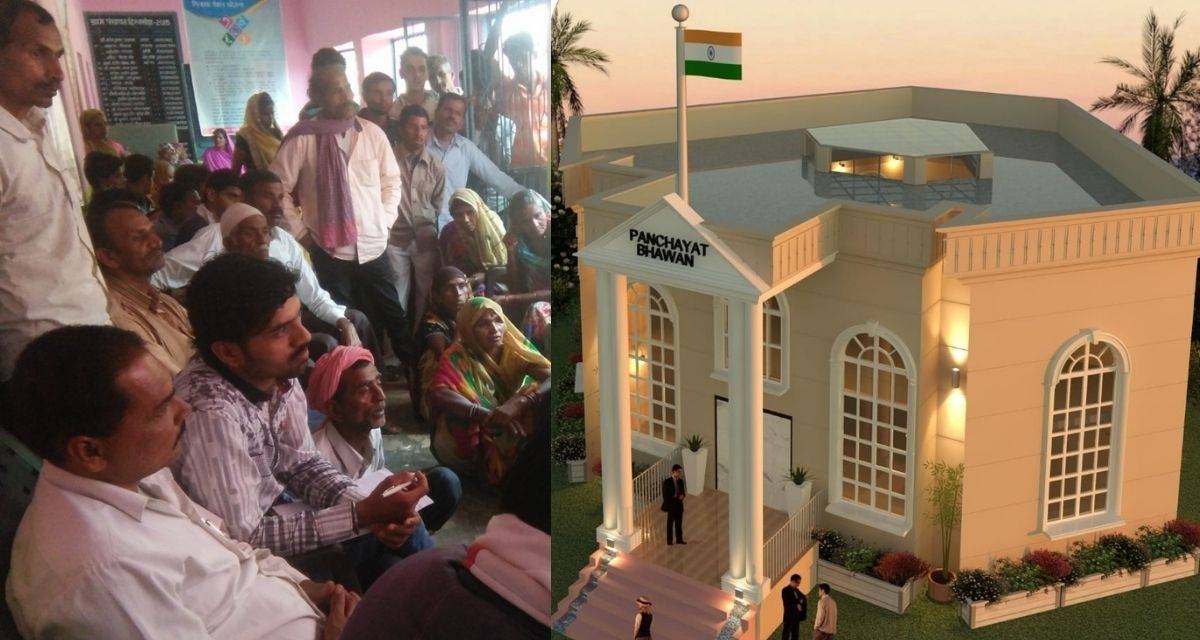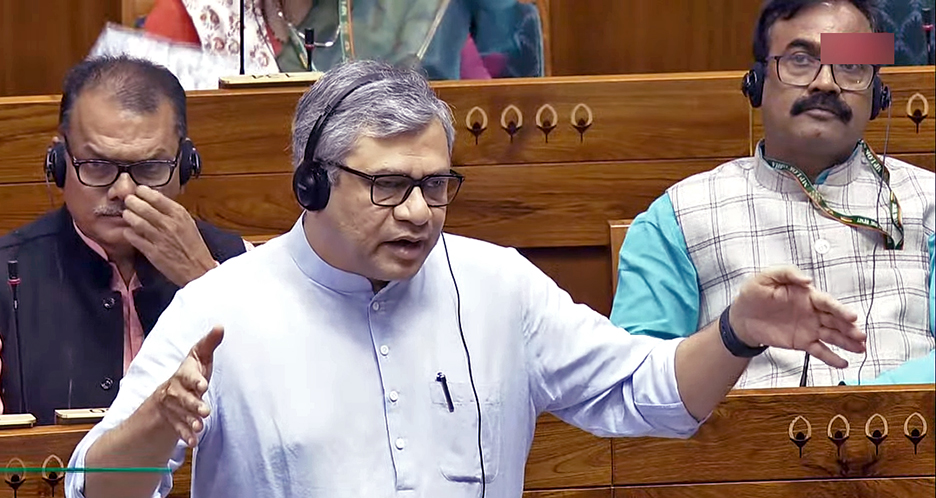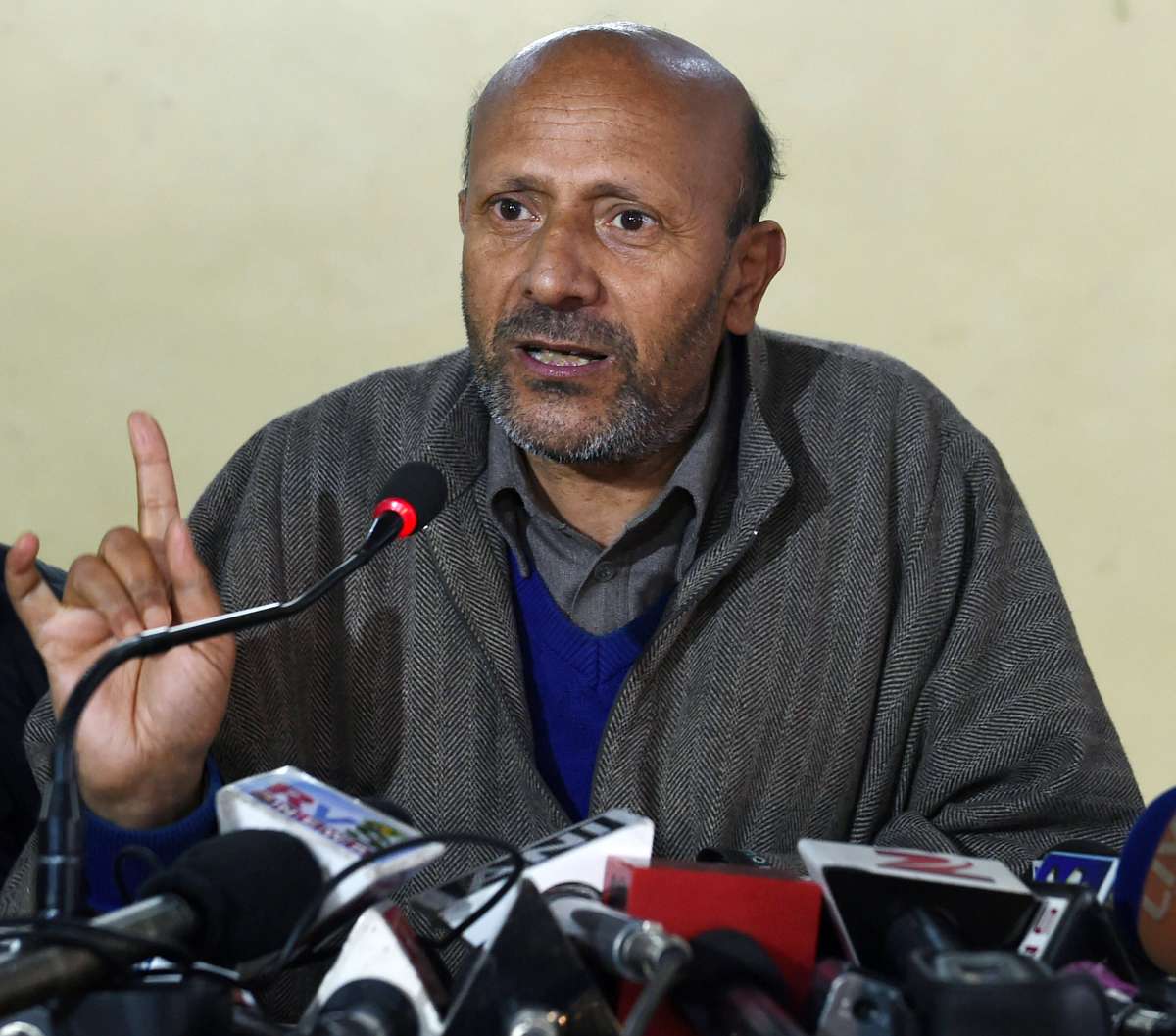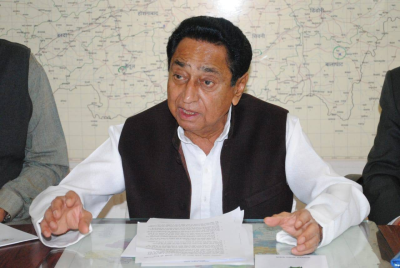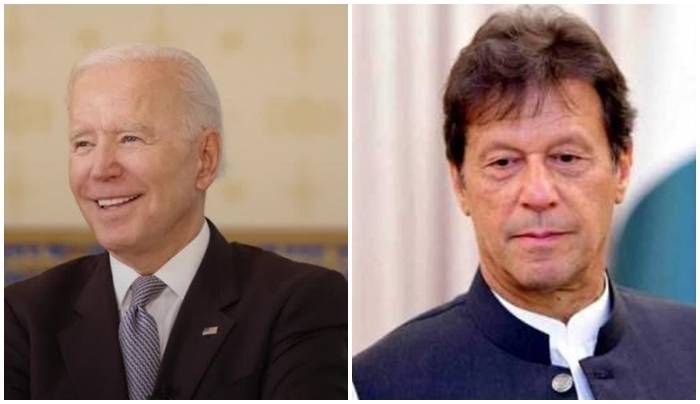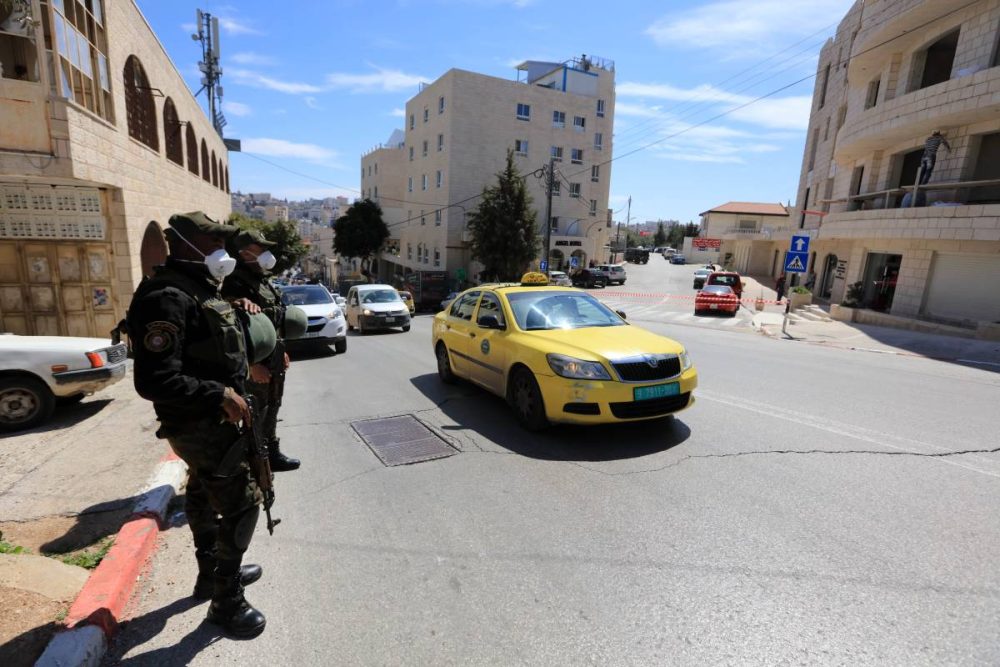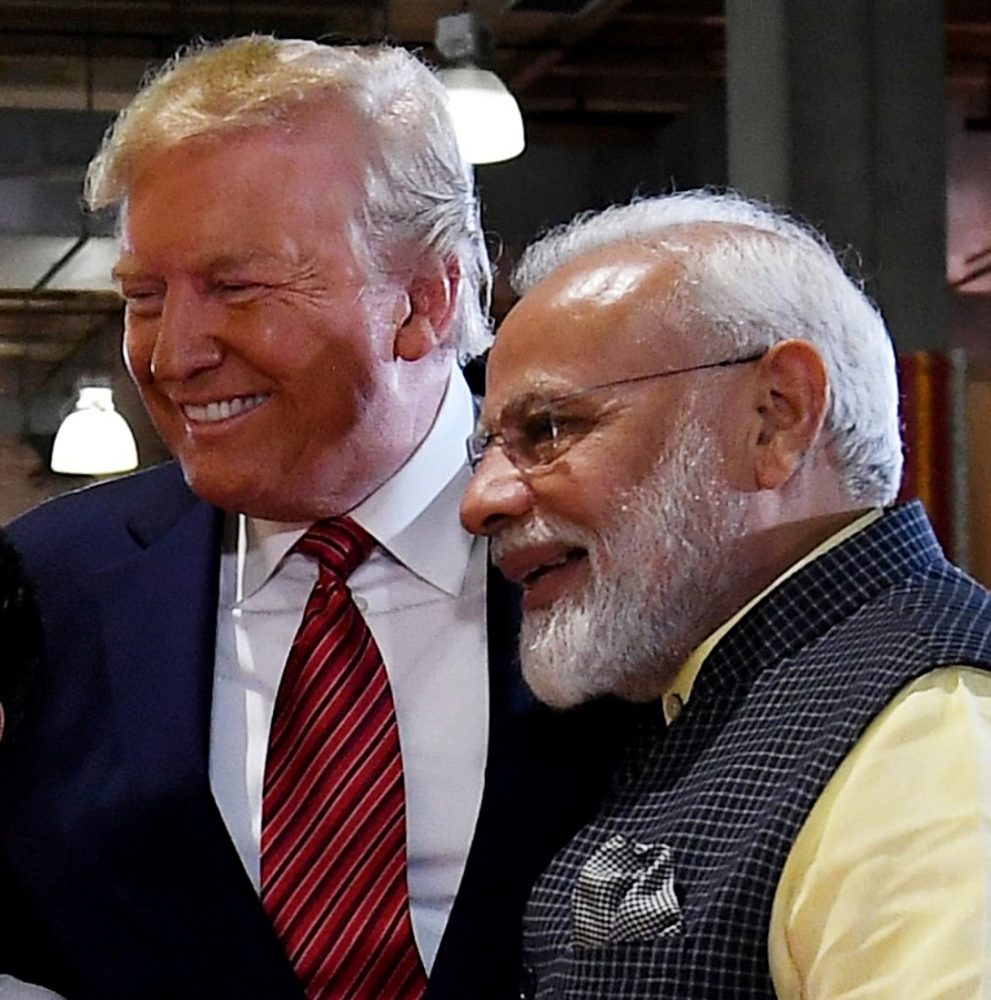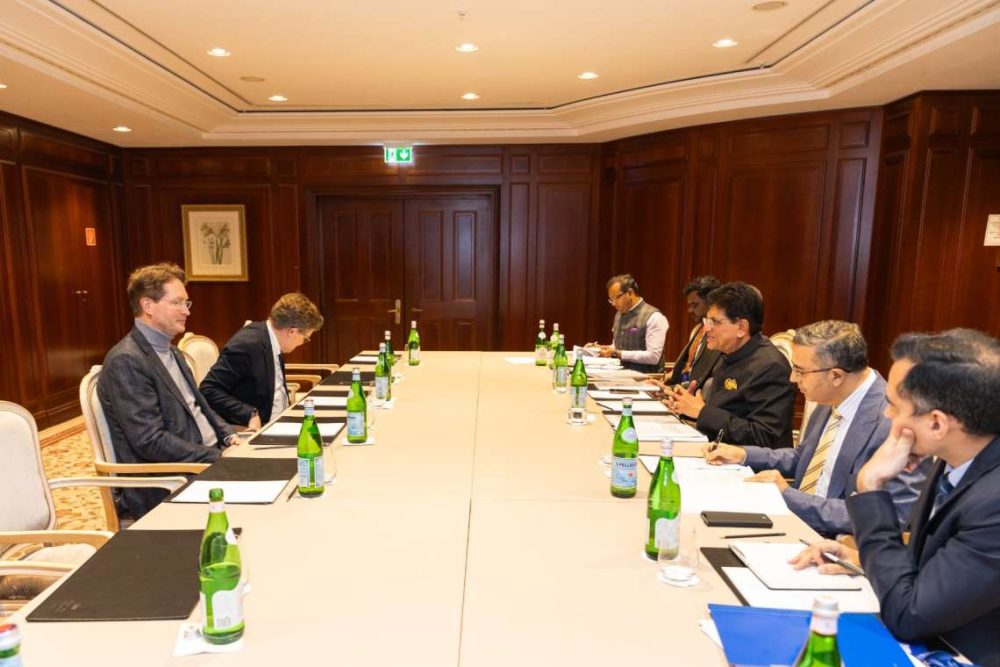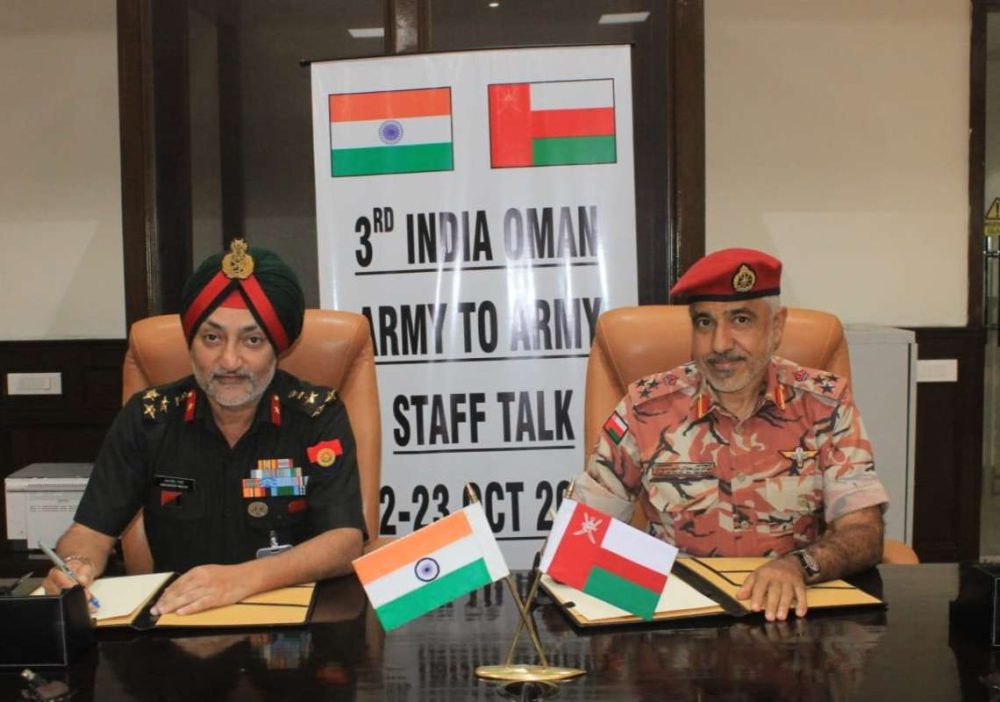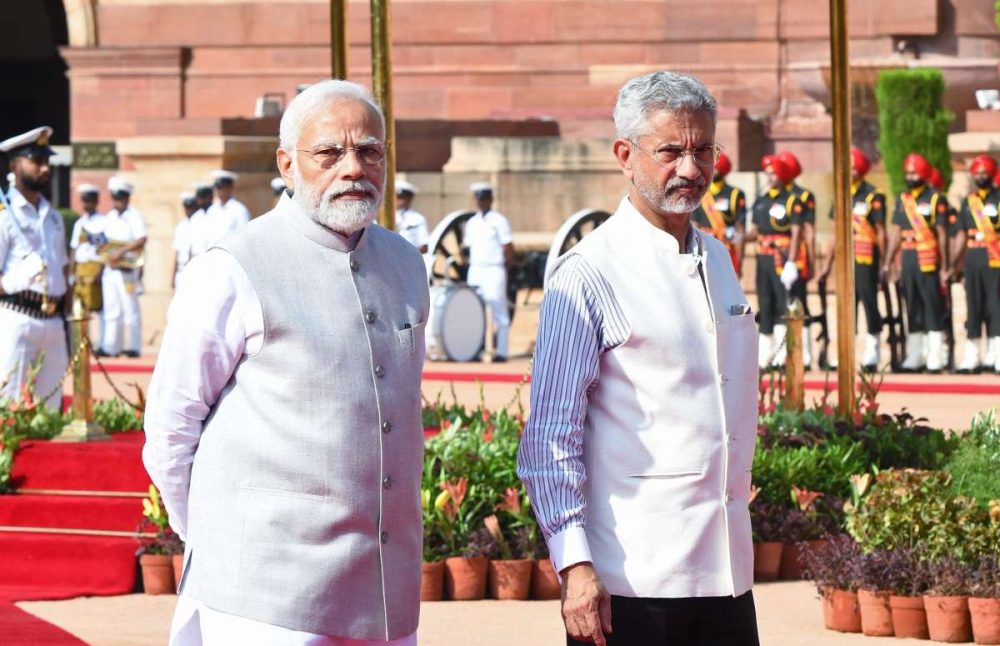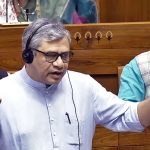The panchayat officials even tried to reach out to the Principal Secretary of the department, Umakant Umarao, but haven’t received a response…reports Shahroz Afridi
The panchayat in the village of Hirankheda, Seoni Malwa block, in Madhya Pradesh’s Hoshangabad district, has found itself at odds with the Janpad and Zila Panchayat offices after their revamped plan for the new Panchayat Bhawan in the village was ignored.
With their current panchayat office being too small, the gram sabha in Hirankheda decided to improve on it and had passed a resolution on June 15 to build their new panchayat office in the image of Central Vista, the new Parliament complex under construction in New Delhi.
However, officials in the Panchayat and Rural Development Department in the state have refused to approve the design, citing a constraint of time. With the intent of providing more work during the pandemic at the village level, the department had ordered the construction of panchayat offices where needed.
The department had shared a standard architectural plan, which the panchayat said doesn’t meet their needs. The panchayat officials even tried to reach out to the Principal Secretary of the department, Umakant Umarao, but haven’t received a response.
Hirankhedi is the biggest village in the area with a population of 3,800. Sarpanch Mahesh Parihar said, “To pass any resolution at the gram sabha, a minimum quorum of 10% is required. So the panchayat office should have the capacity to accommodate at least 380 people in the meeting hall,” he said. The government-sanction design is too small to accommodate that many people. Moreover, given the pandemic, there should be enough space to maintain social distancing norms during the meetings, Parihar added.
The young panchayat, whose members are mostly in their early to mid-30s, is raring to change the face of the village, said Panch Ashutosh Litoria (28). Part of this effort is a modern and eye-catching panchayat bhawan with facilities that can cater to all the needs of the residents. Apart from being used a few times a year to hold gram sabha meetings, which is the primary function, they would also like the new building to serve as a community space that can host official and social events.
They had consulted with an architect, Eng Abhishek Rajput, who is from the neighbouring village of Ratwada and a friend of Litoria’s. Eng Rajput said he was inspired by the Central Vista and wanted to design a building that will instil a feeling of pride among the villagers.
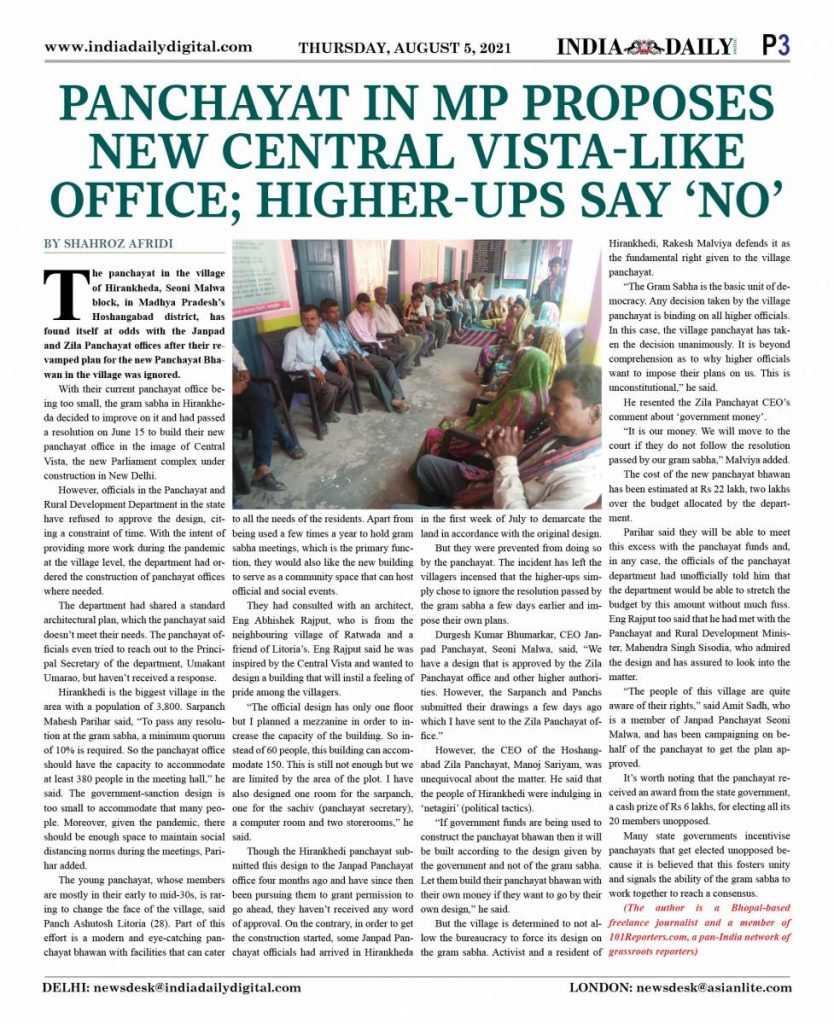
“The official design has only one floor but I planned a mezzanine in order to increase the capacity of the building. So instead of 60 people, this building can accommodate 150. This is still not enough but we are limited by the area of the plot. I have also designed one room for the sarpanch, one for the sachiv (panchayat secretary), a computer room and two storerooms,” he said.
Though the Hirankhedi panchayat submitted this design to the Janpad Panchayat office four months ago and have since then been pursuing them to grant permission to go ahead, they haven’t received any word of approval. On the contrary, in order to get the construction started, some Janpad Panchayat officials had arrived in Hirankheda in the first week of July to demarcate the land in accordance with the original design.
But they were prevented from doing so by the panchayat. The incident has left the villagers incensed that the higher-ups simply chose to ignore the resolution passed by the gram sabha a few days earlier and impose their own plans.
Durgesh Kumar Bhumarkar, CEO Janpad Panchayat, Seoni Malwa, said, “We have a design that is approved by the Zila Panchayat office and other higher authorities. However, the Sarpanch and Panchs submitted their drawings a few days ago which I have sent to the Zila Panchayat office.”
However, the CEO of the Hoshangabad Zila Panchayat, Manoj Sariyam, was unequivocal about the matter. He said that the people of Hirankhedi were indulging in ‘netagiri’ (political tactics).
“If government funds are being used to construct the panchayat bhawan then it will be built according to the design given by the government and not of the gram sabha. Let them build their panchayat bhawan with their own money if they want to go by their own design,” he said.
But the village is determined to not allow the bureaucracy to force its design on the gram sabha. Activist and a resident of Hirankhedi, Rakesh Malviya defends it as the fundamental right given to the village panchayat.
“The Gram Sabha is the basic unit of democracy. Any decision taken by the village panchayat is binding on all higher officials. In this case, the village panchayat has taken the decision unanimously. It is beyond comprehension as to why higher officials want to impose their plans on us. This is unconstitutional,” he said.
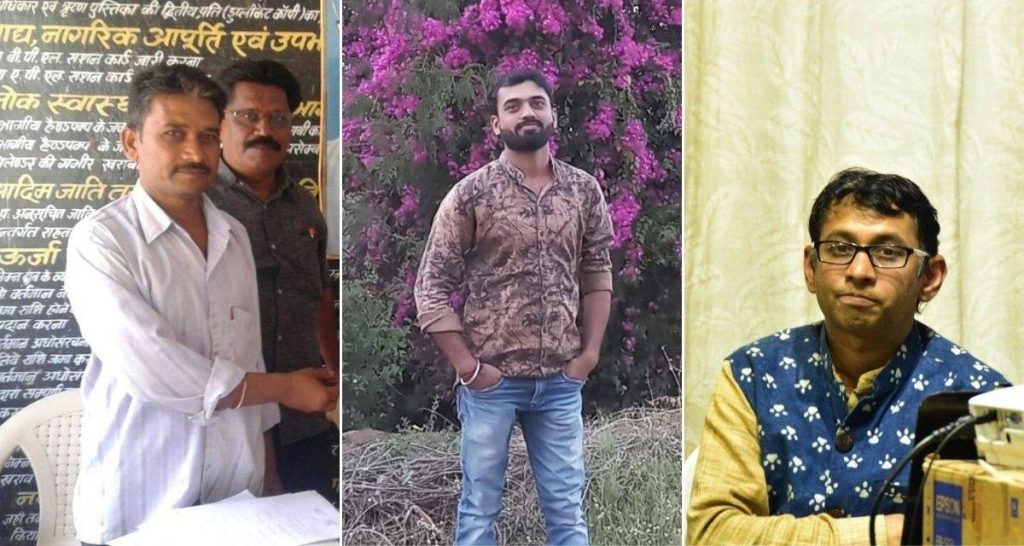
He resented the Zila Panchayat CEO’s comment about ‘government money’.
“It is our money. We will move to the court if they do not follow the resolution passed by our gram sabha,” Malviya added.
The cost of the new panchayat bhawan has been estimated at Rs 22 lakh, two lakhs over the budget allocated by the department. Parihar said they will be able to meet this excess with the panchayat funds and, in any case, the officials of the panchayat department had unofficially told him that the department would be able to stretch the budget by this amount without much fuss. Eng Rajput too said that he had met with the Panchayat and Rural Development Minister, Mahendra Singh Sisodia, who admired the design and has assured to look into the matter.
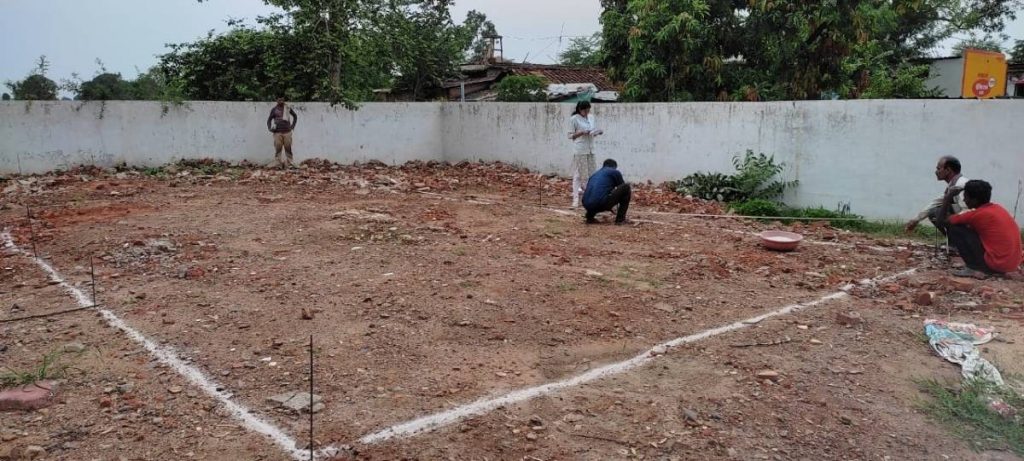
“The people of this village are quite aware of their rights,” said Amit Sadh, who is a member of Janpad Panchayat Seoni Malwa, and has been campaigning on behalf of the panchayat to get the plan approved.
It’s worth noting that the panchayat received an award from the state government, a cash prize of Rs 6 lakhs, for electing all its 20 members unopposed.
Many state governments incentivise panchayats that get elected unopposed because it is believed that this fosters unity and signals the ability of the gram sabha to work together to reach a consensus.
(The author is a Bhopal-based freelance journalist and a member of 101Reporters.com, a pan-India network of grassroots reporters)


